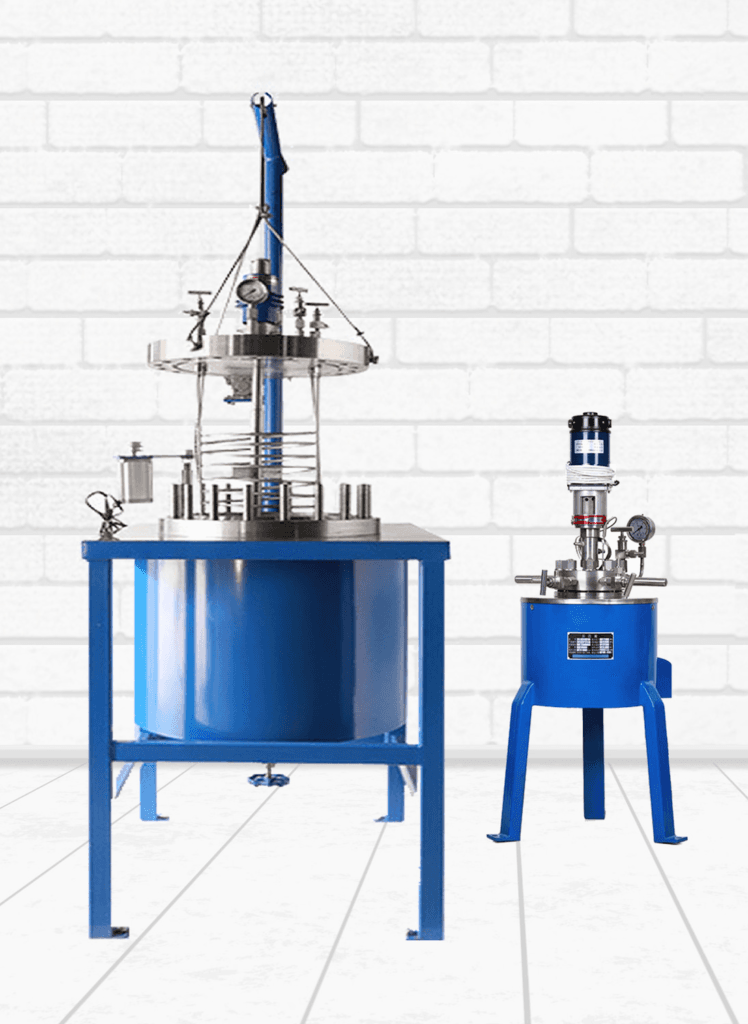Exploring the Advantages of Glass Pressure Reactor in Modern Laboratory Applications
The glass pressure reactor is an essential tool in chemical and material science laboratories, facilitating high-pressure and high-temperature reactions with precise control. This type of reactor is widely used in organic synthesis, polymerization, hydrogenation, and catalytic reactions, offering a robust and transparent reaction vessel that allows real-time observation. The EquilRxnLab glass pressure reactor integrates advanced mechanical stirring, modular electric heating, and high-pressure containment, ensuring superior performance across a broad range of experimental conditions.

Key Features of Glass Pressure Reactor
1. Durable and Transparent Design for Enhanced Observation
Unlike conventional metal reactors, the glass pressure reactor provides real-time visual monitoring, allowing researchers to observe reaction dynamics, phase changes, and mixing efficiency. The EquilRxnLab glass pressure reactor is constructed with high-quality stainless steel (304 & 316) and durable borosilicate glass, ensuring chemical resistance and structural integrity even under extreme conditions.
2. Wide Range of Volume Options
To accommodate different research needs, the EquilRxnLab glass pressure reactor offers multiple volume options:
- 50 ml, 100 ml, 250 ml, 500 ml
These options provide flexibility for small-scale experimental setups and larger batch reactions, making it suitable for various research fields, including pharmaceutical development, nanomaterial synthesis, and green chemistry applications.
3. High-Pressure and High-Temperature Capabilities
The glass pressure reactor operates within a wide pressure and temperature range, allowing scientists to conduct demanding experiments:
- Pressure Range: Up to 22 MPa
- Temperature Range: 0°C to 350°C
These conditions enable supercritical fluid reactions, hydrothermal synthesis, and advanced material processing, ensuring maximum efficiency in high-performance chemical research.
4. Advanced Stirring and Heating Mechanisms
Efficient heat transfer and uniform mixing are essential for reaction optimization. The EquilRxnLab glass pressure reactor integrates:
- Mechanical stirring (0-1800 rpm, adjustable) for consistent reagent dispersion
- Modular electric heating with 0.6 kW power (50ml-250ml) and 0.8 kW power (500ml) for precise thermal control
This combination enhances reaction kinetics, yield, and reproducibility, making the reactor ideal for catalytic processes, material synthesis, and organic transformations.
Applications of Glass Pressure Reactor
1. Catalytic Hydrogenation and Organic Synthesis
The glass pressure reactor is widely used for hydrogenation reactions, carbonylation, and oxidation processes, where precise temperature and pressure control are required. The EquilRxnLab glass pressure reactor ensures safe and efficient execution of these high-pressure reactions, making it a reliable choice for pharmaceutical and petrochemical research.
2. Polymerization and Material Development
Polymer scientists rely on glass pressure reactors for controlled polymerization reactions, enabling the synthesis of high-performance plastics, resins, and biodegradable polymers. The EquilRxnLab glass pressure reactor provides the necessary pressure stability and thermal precision for optimizing polymer structures.
3. Hydrothermal Synthesis and Nanomaterial Fabrication
Hydrothermal and solvothermal synthesis methods benefit from the high-pressure capabilities of the EquilRxnLab glass pressure reactor. Researchers use it to fabricate nanoparticles, metal-organic frameworks (MOFs), and advanced composites, optimizing reaction conditions to achieve desired morphologies and functionalities.
4. Green Chemistry and Sustainable Process Development
Green chemistry applications, such as biodegradable material synthesis and carbon capture reactions, require reactors capable of withstanding supercritical CO₂ and bio-based reactants. The glass pressure reactor supports these sustainable innovations by offering safe and scalable reaction control.
Optimizing Research with EquilRxnLab Glass Pressure Reactor
Choosing the right glass pressure reactor involves evaluating factors such as reaction volume, pressure tolerance, heating efficiency, and stirring control. The EquilRxnLab glass pressure reactor stands out with its robust construction, modular heating system, and digital display interface, providing a seamless user experience for laboratory professionals.
For more details on the EquilRxnLab glass pressure reactor, visit:
👉 Mechanical Stirring High Pressure Reactor
Stay Connected with EquilRxnLab
Stay updated on innovative laboratory equipment by following EquilRxnLab on social media:



